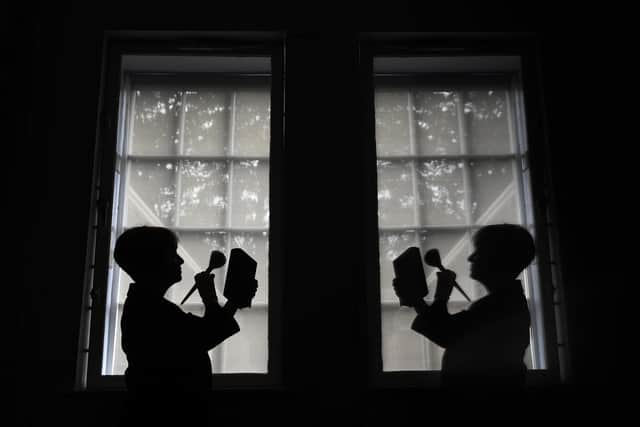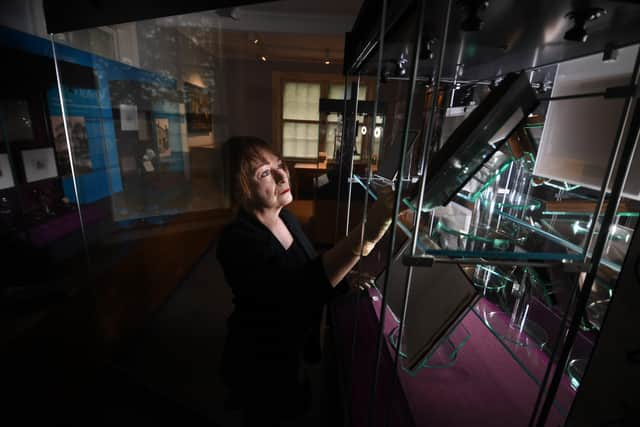New chapter brings an uncertain future for Brontës of Haworth
The year had begun well. The second of six matchbox-sized volumes written by the author of Jane Eyre had gone on public display for the first time, following its purchase at auction in Paris. And an exhibition marking the 200th birthday of her sister was running alongside.
But what came next – the longest closure for 92 years – was a chapter as dramatic as anything dreamed up inside the old house during the 19th century.
Advertisement
Hide AdAdvertisement
Hide AdWith the summer season lost and the Brontë Society facing an uncertain financial outlook as it prepares to let in visitors, six at a time, from next weekend, the stakes have seldom been higher.


Yet some of the staff were concerned more for the former occupants of the Parsonage than for their own future.
“It was really unfair on Anne,” said Rebecca Yorke, the society’s head of communications. “As the forgotten sister, it seemed ironic that we had to close in her anniversary year.”
To make amends, the Parsonage Museum has extended the exhibition devoted to her life and work, until the beginning of 2022. And her bicentenary has been marked with a digital “Brontë Lounge”, launched in July.
Advertisement
Hide AdAdvertisement
Hide AdThe extent to which social distancing was practiced by the family in a village rife with disease and little sanitation, is not known.


“It’s a very modest house. With the family and a couple of servants, there would definitely have to have been room sharing,” said Ms Yorke.
“We do know they moved around – the bedrooms Charlotte and Emily had when they were little would not have been the ones they kept.”
In deciding to reopen, the Brontë Society, like many others, had walked a tightrope between safety and sustainability.
Advertisement
Hide AdAdvertisement
Hide Ad“It’s a beautiful, intimate house where space is very limited and footfall was always going to have to be reduced,” Ms Yorke said.
“At least it will mean that visitors will have more space to themselves. It will become very atmospheric.
“We’re hoping that a typical group might be a household of four and another two people. But coach parties don’t work like that, and we’re not expecting international visitors or school groups any time soon.”
She added: “Our biggest enemy at the moment is uncertainty. When we opened for the year in February, with Charlotte’s little book on display and with events planned for Anne’s anniversary, we had every reason to believe it would be a really good year.
Advertisement
Hide AdAdvertisement
Hide Ad“But missing the summer season has given us a huge hurdle to get over and our financial future is now quite vulnerable.”
Earlier in the year, the society secured emergency funding from the Arts Council and is now applying to the organisation’s cultural recovery fund.
The first visitor to the reopened Parsonage next Thursday will be the local MP, Robbie Moore. Members of the Brontë Society will be allowed inside from the next day and the public the day after, with admission by pre-booking only.
The Parsonage has been a museum since 1928, when the church put it up for sale at an asking price of £3,000. The buyer was Sir James Roberts, a Haworth wool merchant, who handed the deeds to the Brontë Society.
Support The Yorkshire Post and become a subscriber today.
Advertisement
Hide AdAdvertisement
Hide AdYour subscription will help us to continue to bring quality news to the people of Yorkshire. In return, you’ll see fewer ads on site, get free access to our app and receive exclusive members-only offers.
So, please – if you can – pay for our work. Just £5 per month is the starting point. If you think that which we are trying to achieve is worth more, you can pay us what you think we are worth. By doing so, you will be investing in something that is becoming increasingly rare. Independent journalism that cares less about right and left and more about right and wrong. Journalism you can trust.
Thank you
James Mitchinson
Comment Guidelines
National World encourages reader discussion on our stories. User feedback, insights and back-and-forth exchanges add a rich layer of context to reporting. Please review our Community Guidelines before commenting.